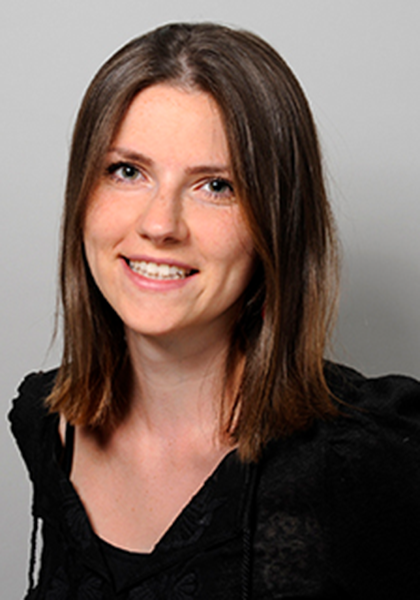Closing the Microcredit Gender Gap in Ghana

Economics professor David-Yanagizawa-Drott had an intriguing idea for a research seminar – a field study in the West African country of Ghana. “The idea was for PhD candidates to experience what it means to engage in applied development economics and the challenges associated with it,” says the UZH professor. The seminar proved popular, and so in April 2023, he and five PhD candidates plus two Master’s students traveled to Accra, the capital of Ghana, to study Ghana’s microcredit market.
Their plan was to collaborate with the largest microcredit company in the country, Quick Credit, which has over 200,000 clients and hands out loans totaling USD 5 million every week. The UZH researchers were interested in how microcredits are handled and whether there are gender differences in how these small loans are granted. This involved analyzing data from 400,000 loans and conducting interviews with the borrowers, the call center agents who process loan applications, and the loan officers who carry out on-site assessments of the creditworthiness of small businesses and approve the amounts handed out.
The contact with Quick Credit was established by Kobbina Awuah, a PhD candidate at UZH who lives in Ghana. He has invested in several companies in his home country and has strong ties to local businesses. “The project is a great opportunity for me to give back to my country,” says Awuah.
Traditional gender roles
The microcredit loan process in Ghana revolves around call centers. This is where loan applications are handled and key details are recorded, including the nature of the client’s business, their age and gender as well as the loan amounts requested. Call center employees often advise their clients, for example by suggesting that they increase the amounts they have asked for. And this makes a lot of sense, since the UZH economists found that, on average, the initial loans that women apply for are 30% lower than the ones men ask for. Quick Credit also grants women less money than male borrowers.
These differences can be explained by roles that are deeply rooted in the local society. “In Ghana, gender roles are still very traditional,” says Stine Helmke, a PhD candidate on the research team. “Family finances are still considered more of a male responsibility.”
This has three unintended and undesirable consequences: firstly, women are given less money to develop and succeed with their businesses. Secondly, microcredit companies grant fewer loans, which is bad for business, not least since women are more reliable when it comes to paying back their loans. And finally, the gender gap is perpetuated.
Armed with these data, the researchers returned home after an intensive week of field work. Back in Switzerland, they asked themselves what they could do to change the situation. How can women be encouraged to apply for higher loans when they need them? The answer lay in the amount of information available to them. “We provided borrowers who contacted the call center with information that helped them compare their loans with the amounts requested by others,” says Stine Helmke.

Our main goal is for women and men to have equal access to loans.
The researchers’ idea was put to the test in a second 10-day stint in Ghana in July 2023. For their pilot study, the PhD candidates joined employees in the call center who were handling loan applications. They recorded the details requested by the call center agents in real time and fed this information into a machine learning model they had developed back in Zurich. The model then produced two figures; the first indicated the average loan amount requested by other women with similar personal details, while the second revealed information about the average amount requested by male borrowers. This information was then passed on to the borrowers.
Women increase their loan amounts
How did the women respond to this information? “Many of the women increased their loan amounts, bringing them closer to the average amounts they were informed about,” says Stine Helmke. Interestingly, it seemed that for women, the average amount requested by other women was the decisive piece of information. “That was surprise for us. It appears that women don’t imitate men but their own social group,” says Helmke.
So what do the researchers make of their findings? “We got the results we had hoped for,” says Sara Rabino, another PhD candidate on the team. “The aim of the experiment was to ascertain whether giving women this information would lead to them asking for higher loans. Around one in four actually did.”
Based on these promising findings, the team of researchers has now developed a larger study in which they hope to cover some 1,000 borrowers. This third phase took place at the end of last year, with findings expected to be published in early 2024.
These small and simple interventions could have a big impact. “If gender bias in requesting and granting loans can be overcome, it reduces the financial strain on women who are seeking to establish their own business. And it can help men to avoid asking for loans that are too high and thus reduce their risk of bankruptcy,” the PhD candidates write in the research proposal for the third phase of the project. Their findings could help companies like Quick Credit to better tailor their lending practices to the needs of their clients, which could not only increase the number of loans they grant but also their revenue. Whether they do so, time will tell. “Our main goal is for women and men to have equal access to loans,” stresses Stine Helmke. “It’d be great if a follow-up study could investigate whether higher loans have a positive impact on women’s businesses and make them more profitable,” adds Sara Rabino.
Both agree that the research project in Ghana was a great experience. “It was like a crash course in development economics for us. And we managed to get by, even if it was at times stressful,” says Rabino. “It was very exciting to collect and analyze data ourselves and develop a strategy based on what we learned. And it was fun to meet all the people and work with them.” Kobbina Awuah is convinced that the UZH project will change Quick Credit’s lending practices. “I already spoke with the founder of the company. He is very enthusiastic about the project’s initial findings. He sees an opportunity to start granting more and higher loans to women and in this way help get them more involved in the local economy.” And, adds Awuah, “Quick Credit is the market leader. If they change their business practices, others will follow suit.”